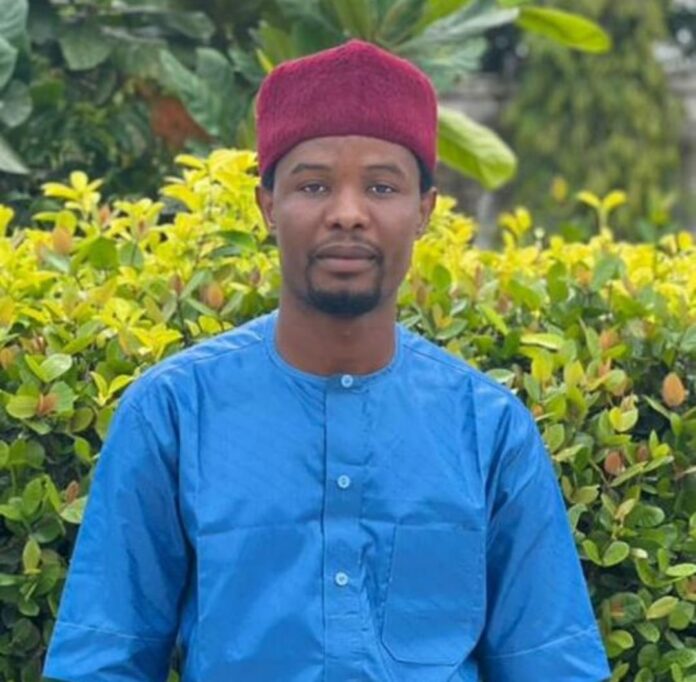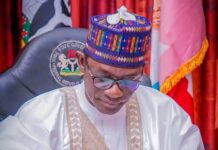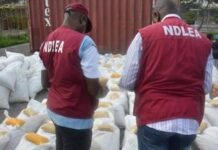Boko Haram, its history and governments’ responses, by Umar Yahaya Dan-Inu
One of the troubled issues affecting the lives of millions of Nigerians and made successive government vulnerable is the issue of Boko Haram. The international community condemned their atrocities and call for total elimination of the group. The Nigerian leaders got proper supports from the global community at the early days of the group before they were accused of showing indifference and not doing well to tame the insurgents. Later, the global leaders withdrew their support especially during the presidency of Goodluck Ebele Jonathan, before they renew it after he lost the election in 2015.
The story of this group is very traumatizing and horrifying, if you try to unravel it, the pain and agony will not let you do it, our hearts are heavy, the traumas are real, but researchers and scholars will provide more in-depth reviews and data on this subject. The central thesis of this essay will briefly provide the history of the group, their method of operations, the degrees of destruction caused by the insurgents and governments’ responses.
Boko Haram is a ‘terrorist’ organisation. The group launched a full-scaled terror war against the Nigeria state and its people in 2009. The group became a threat when they called for the establishment of ‘Islamic caliphate’ state within Nigeria territory. The origin of Boko Haram traced back to Obasanjo administration in which the group declared that western education is forbidden. The government of Obasanjo dislodged them from Kanamma; the headquarters of Yunusari Local Government of Yobe State, they later became noticeable as they manifested in Maiduguri, Borno State capital in 2002.
The insurgents were influenced by the teaching of some ‘Middle-East Jihadist’. Their understanding of Islamic Sharia concept is challenged by the larger Muslims scholars in Nigeria and beyond. The founder and the leader of the group was Muhammad Yusuf who was captured by the military operation in 2009 and was handed over to Police in Maiduguri before he was killed. Their Markaaz (School) was destroyed by the military and were pushed from the Maiduguri metropolis to Sambisa forest along Lake Chad.
At the beginning, the group was known as Jama’atu Ahlul-Sunnah lil-dda’a wati wal-jahad before the media organisations, scholars and theorists coinage the names “Boko Haram” because of their ideological beliefs that western education and school system is forbidden in Islam, it goes against the teaching of Islam. The issue was debated by Muslim scholars, that their understanding of Islamic Sharia were absolute wrong on western education and the group insisted they are right and Muslims should liberate themselves and discard anything related to western education and secular state. Islamic scholars viewed their arguments as weak and wrong that lacks clear evidences and facts from Islamic perspective. Their beliefs contradicted the constitution of the country and Islamic teaching.
Furthermore, the group ransacked and destroyed villages and local governments in Borno, Yobe and Adamawa states. They kidnapped people and used girl-child and women as suicide bombers, attacks military and police personnel in check points, homes and in barracks, held people as hostages and demand ransom or used them as shield when they had an encounter with military personnel. They made women widow and children orphan, displaced millions of people into Internally Displace Camps (IDP Camps) and refugees in neighboring countries of Niger, Chad and Cameroon.
The group, after the killing of their leader (Muhammad Yusuf), Abubakar Shekau emerged as the leader, a notorious terrorist. The insurgents split into two groups in which Shekau led faction formed an alliance with the Islamic State of Iraq and Syria (ISIS), a terrorist organisation in the Middle East. The Boko Haram insurgency affected millions of Nigerians, the most vulnerable group are female and girl-child. The insurgents used them as suicide bombers, kidnapped and rape them.
The most horrifying event in the history of Boko Haram was the kidnap of 276 Chibok schools girls in Borno at the verged of writing their Senior Secondary Schools examinations (SSCE), this has became traumatic not only to their families, but to people in Nigeria and around the globe. Another incident that made the international community to condemned Nigeria leaders is the attack in Baga local government where Boko Haram ransacked the town, killed thousands of people, both male and female, mothers and their children and burn down hundred houses, destroyed farms, business and fishing activities in the town. The same stories of carnage and atrocities of magnitude committed by the insurgents in Rann, Kala-Balge, Zabar-mari, Gaidam, Gujba, Kuka-reta and many-other communities in Nigeria.
Before Buhari emergence as President, 14 local governments were held by the insurgents in Borno, Yobe and Adamawa states. Their flags are all over the areas. The government of President Jonathan used the opportunity to extend the 2015 general election time to March, 2015 for total liberation of the towns held by the insurgents which never happened until they lost the election to Buhari. The global community condemned Jonathan administration for their lack of response to take responsibility in protecting the lives of Nigeria.
Later, at the beginning of Muhammadu Buhari administration, the group kidnapped another set of 110 students in Government Girls Science and Technical College (GGSTC), Dapchi. The Buhari government did everything possible to negotiate with the terrorists for the release of both Chibok and Dapchi schools girls. The group released 109 of Dapchi school girls and held Leah Sherabu because of her religion beliefs stated by the insurgents. For Chibok girls, there are still remaining students in the hands of the terrorists. This has become their method of putting terror in the minds of Nigerians. Kidnapping of school students became trends and new normal in the country, the group influences bandits to kidnapped school students in Kaduna, Katsina, Zamfara, Sokoto and Niger states.
When the new administration of Buhari took over power, the military got support from the government and the international communities, all local governments under the control of Boko Haram were liberated. The government collaborated with the neighbouring countries of Niger, Benin, Chad and Cameroon to fight the insurgents. The groups are now degraded and cannot be able to carry out attacks openly as they do in their early days. They were confined to Sambisa forest. The fight took another dimension; the insurgents regroup from Sambisa forest to North-West and North-Central states. There is a possibility of alliances between bandits and the insurgents.
What is needed from the government at all levels is to brace up and fight every kind of terrorism and criminal acts in the country, all displaced people should return to their homes, the government should provide them with proper support to start a new life. All affected communities should be properly rebuilt and victims should be compensated because of the trauma, agony and pains they found themselves. The government should look at all structural problem created such as poverty, illiteracy, unemployment and lack of equity in access to common pool resources. There is also a need for community policing, the religious and traditional leaders should be given formal role to checkmate emergence of such group in order to prevent another crime against Nigerians. Nigerians need peace.
Umar Yahaya Dan-Inu writes from Hausari Ward, Nguru Yobe State and can be reach via email: umarnguru2015@gmail.com
Follow the Neptune Prime channel on WhatsApp:
Do you have breaking news, interview request, opinion, suggestion, or want your event covered? Email us at neptuneprime2233@gmail.com





